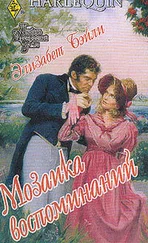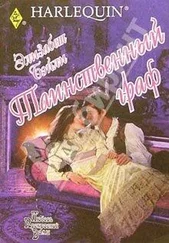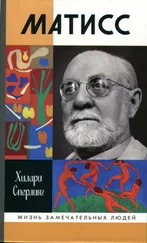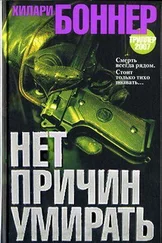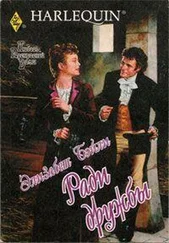Хилари Бэйли - The Ramparts
Здесь есть возможность читать онлайн «Хилари Бэйли - The Ramparts» весь текст электронной книги совершенно бесплатно (целиком полную версию без сокращений). В некоторых случаях можно слушать аудио, скачать через торрент в формате fb2 и присутствует краткое содержание. Жанр: Проза, на английском языке. Описание произведения, (предисловие) а так же отзывы посетителей доступны на портале библиотеки ЛибКат.
- Название:The Ramparts
- Автор:
- Жанр:
- Год:неизвестен
- ISBN:нет данных
- Рейтинг книги:3 / 5. Голосов: 1
-
Избранное:Добавить в избранное
- Отзывы:
-
Ваша оценка:
- 60
- 1
- 2
- 3
- 4
- 5
The Ramparts: краткое содержание, описание и аннотация
Предлагаем к чтению аннотацию, описание, краткое содержание или предисловие (зависит от того, что написал сам автор книги «The Ramparts»). Если вы не нашли необходимую информацию о книге — напишите в комментариях, мы постараемся отыскать её.
The Ramparts — читать онлайн бесплатно полную книгу (весь текст) целиком
Ниже представлен текст книги, разбитый по страницам. Система сохранения места последней прочитанной страницы, позволяет с удобством читать онлайн бесплатно книгу «The Ramparts», без необходимости каждый раз заново искать на чём Вы остановились. Поставьте закладку, и сможете в любой момент перейти на страницу, на которой закончили чтение.
Интервал:
Закладка:
“There isn’t anyone like that in the city,” he said.
“Well, suppose there were?”
“The council asks them to go to another town,” he said, remembering what he had learned.
“What happens if they go there and go on doing whatever they were doing in our town? What does the new town do?”
“They probably ask them to go to another town,” he said.
“And suppose they do it again, and again, in every town they go to?”
He thought, then said, “I suppose you mean they put them in the forest.”
“That’s right,” she said. “The man you saw was probably one of those. There are women too.”
“It can’t be very nice in there. Suppose they want to come back?”
“I think if they really wanted to live in the towns they would behave themselves,” she said.
Probably, I thought, Regan did not know. Did not know. But a little girl such as she had been — showing signs of deviating, being an outsider? Her mother must have told her. She did not remember. I recalled Ritchie Callender. And I suddenly remembered someone else— Bennet, who had lived in twenty cities, who molested children, who had never been able to work. That moonlit night we were supposed to be asleep, my cousin and I, when we were woken up by the noise near our house. We leaned out of the window and saw the townspeople making rough music, beating on pots and pans and buckets, shouting. And there was Bennet, in the center of the crowd, being beaten back foot by foot into the forest, turning to them and shouting, turning back toward the forest, retreating under the full moon as they mobbed him over the lawn into the dark trees. We could not hear him above the din. We just saw his sagging mouth opening and closing as they pushed him on. My cousin, only five, had cried. I, being older, knew that Bennet, who had waited for us on the way home from school, had to be sent off somewhere. But the violence and fear frightened me. I could not see how the townsfolk could push him into the forest they were themselves so afraid of.
As we rode through the forest, those three scenes flashed in front of my eyes like photographs — the little girl laying her doll down to open the door of the shed where her dog was waiting to jump up and lick her face, my grandfather sitting behind his old carved desk telling me about the mutant babies, the moonlight falling on Bennet’s upturned, grimacing face.
And now Arthur was silent too. From now on he would carry his own photograph with him. There would be a picture of the wild man caught in the headlights of the car. There would be his mother speaking and, I suppose, my back, my silence, as I steered the car forward.
I felt I had to say something. “It’s very unpleasant, Arthur, but try not to think too much about it. These things have to happen. And don’t tell any of the other children. It would only frighten them. There are very, very few people in the forests and they are only there because the towns cannot have them. We could not have people like that in the cities.”
As I spoke I wondered how many people there really were in the forests. Three, four, five hundred years of antisocial men and women, abandoned babies, girls with unpermitted Arrivals. How many were there? How many? How had we in the cities let this happen? I felt my head was bursting. I didn’t want to think these thoughts and yet they came crowding in, overwhelming me. And there was a perverse satisfaction in not being able to control them, like drinking too much wine, knowing it was unwise but not being able to stop. I wished Regan would speak so that I could reply and we could talk all the way home. But she had resumed her frozen, intent position. She was too engrossed in her thoughts to speak.
We thought they died, I told myself. At least, no one consciously thought that, but at the backs of our minds we assumed it was true. We never acknowledged it to ourselves, let alone to each other. Now, never mind how destructive the thought, we had— Why else were they building it — and I was the designer — and my mind seemed to collapse under the weight of it all. In my ears was the sound of someone groaning, groaning, groaning.
I am exhausted today. It is very early, and as I sit in my room at the top of the house, a few feathery wisps of cloud move in the blue sky above. There too is the long sweep of sunlit lawn down to the trees. Normally at this hour I can hear the birds singing. Today the men are working, digging the foundations for the ramparts. There is the sound of spades hitting the metal markers which show the course of the wall. The men call out to each other. Wheelbarrows full of bricks leave tracks on the dewy grass. Piles of bricks are dropped onto it from the barrows.
What did we say when the council confirmed the order for my plans? How did we put the proposal to each other? I seem to remember something about deer straying into the city in winter and spoiling the fields and gardens, small children straying out of the city into the forest. It all seemed very convincing at the time. I suppose, because it had to be convincing. We needed the ramparts. We needed to ignore the reasons why we needed them. But we must have known. We must have known.
at the feeding last night they sang of a wall of square stones outside the forest. I say, they want to keep us in, mates. I don’t know why I say that. I had a flash in my brain, that’s why. Outside there is light to glare and make you shut your eyes. You cannot open them or they burn. But those other men, they say, sleep on soft lying places, off the ground, under shelter. This place is hard. I’ll fetch more leaves. The woman is sobbing in her sleep again. The child wails. Bloody noise. No, I’ll sleep now.
The sun is up high now. I have put off my visit to the council for too long. I have so much to say. I must report my sighting of the man last night on the road. I must tell about Keeney’s dog. I must ask the council to find out where he was yesterday when he should have been in Juram. I have an idea — it’s absurd — that Keeney will harm me if I go to the council, the way Lesley used to when she was ten and I was seven. How disloyal to think this of a fellow citizen. I should report myself to the council as well. The sooner I make my report and return to get some sleep, the better I’ll feel.
Regan comes in, ready to go out…
I asked her if she would prefer to stay at home and leave the council visit to me. She said she believed she ought to come, but when she picked up her handbag her hands were trembling. I thought: What are we all coming to?
I said, “Let’s go straightaway, then, and get it over with. We can leave Arthur at the Children’s Hall.”
As we walked along our quiet streets, I sensed that the trees, pleasant gardens and fountains were all subtly different. I can’t explain it. Contentment, pleasure in these things, had gone. I felt as I did the day Regan bore Arthur — upset, different, how to describe it? Disturbed? It took me back to those dreadful walks home from school when I knew Lesley was waiting down the road behind the big elm, ready to pounce on me, throw me on the ground and kick and punch me.
The Council House stood there in the center of the big square with its marble statues and twenty small fountains. There were people in the square buying and selling foodstuffs and material. All spoke in low voices, smiled at each other — there were more people walking to and fro on the long marble floor of the House. The smell of aromatic tea from the restaurant was strong, as it usually is in the mornings. All over the country the doors of the Houses had just swung open, the citizens had entered and were talking to each other, the scent of the tea was wafting through hall, offices and corridors.
Читать дальшеИнтервал:
Закладка:
Похожие книги на «The Ramparts»
Представляем Вашему вниманию похожие книги на «The Ramparts» списком для выбора. Мы отобрали схожую по названию и смыслу литературу в надежде предоставить читателям больше вариантов отыскать новые, интересные, ещё непрочитанные произведения.
Обсуждение, отзывы о книге «The Ramparts» и просто собственные мнения читателей. Оставьте ваши комментарии, напишите, что Вы думаете о произведении, его смысле или главных героях. Укажите что конкретно понравилось, а что нет, и почему Вы так считаете.

